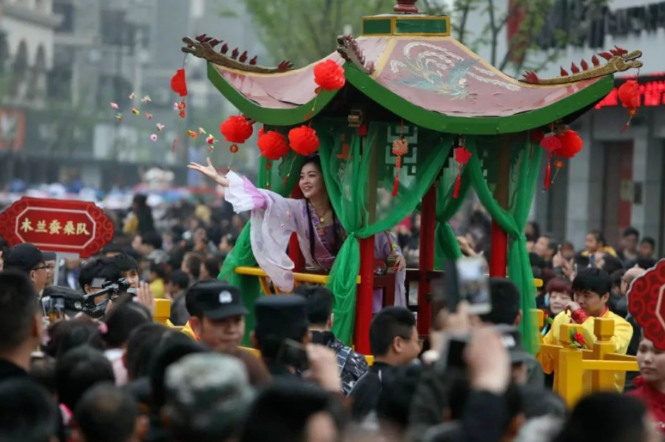Why can Qingming become one of the four traditional Chinese festivals?
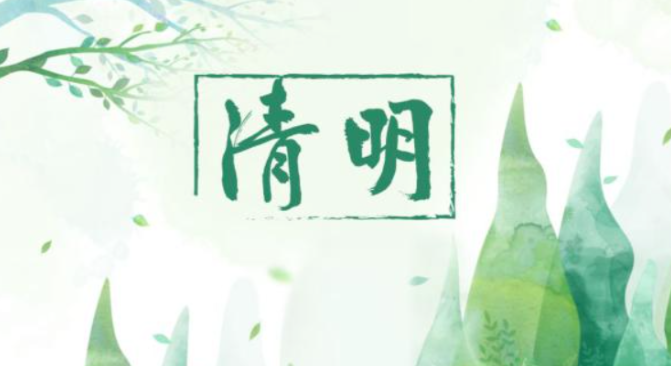
"Almanac" : "15 days after the vernal equinox, the bucket refers to Ding, for Qingming, when all things are clean and clear, cover when Qi Qing Jingming, all things are visible, so the name."
Qingming Festival, also known as Taqing Festival, Qing Festival, March Festival, ancestor Festival, etc., in the middle of spring and late spring, is the Chinese nation's traditional major Spring Festival.
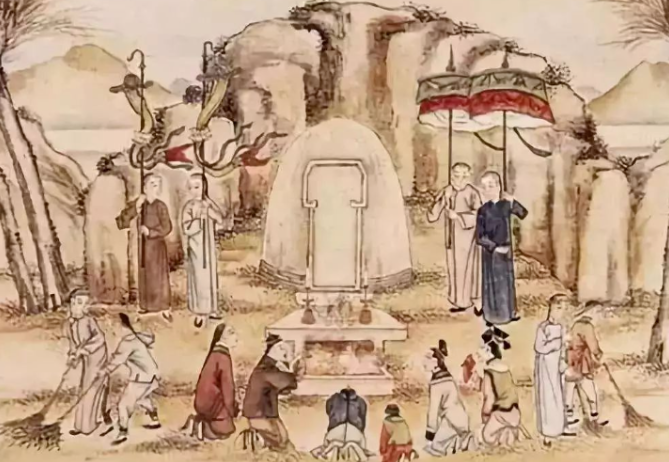
Its origin can be traced back to ancestral beliefs and spring rituals in ancient times. According to historical records, the origin of Qingming Festival is related to the "tomb offering" ceremony of ancient emperors and generals.
In ancient times, emperors and ministers had the "tomb offering" ceremony, that is, in the spring to worship the ancestors and sweep the tombs, later the folk also followed, on this day to worship the ancestors and sweep the tombs, which has become a fixed custom of the Chinese nation.
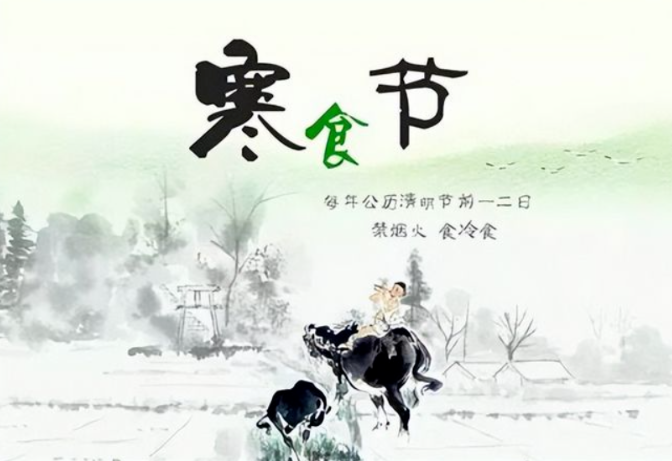
The Qingming Festival, together with the Dragon Boat Festival, the Spring Festival and the Mid-Autumn Festival, are known as the four traditional Chinese festivals.
The traditional Qingming Festival of the Chinese nation began about the Zhou Dynasty, which has a history of more than 2,500 years.
Qu Yuan died, then the Dragon Boat Festival; Child push death, then Qingming.
How did Qingming Festival come about?
The whole world eats cold food, for all ages.
During the Spring and Autumn Period, Chong 'er (Duke Wen of Jin) lived in exile abroad for a long time in order to escape political persecution. During the wandering outside, Muon push has been accompanied by Chonger's side. Once Chonger fainted because of hunger and had nothing to eat. In this critical moment, Jie cut off a piece of meat on his thigh and made a bowl of soup for Chonger. In this way, Chonger saved his life. Later, with the aid of the State of Qin, Chong Er returned to the throne, and rewarded his ministers after his succession, but did not give Jie Zitui any awards and positions, and Jie Zitui did not want to get involved in the official world, so he left the court with his old mother and went to Mianshan. After the duke of Jin learned, recall the pion push for yourself to do everything, always feel a little sorry for him, and personally take people to mian mountain to find pion push. But they looked for a long time also can not find the pion push, Jin Wen Gong will listen to the villain slander set fire to the mountain, hope to force out the pion push. However, unfortunately, they found the bodies of Jie Zi and his mother under a withered willow tree, and then they also found a letter in blood: "Cut the flesh in your heart, I hope the Lord is always Qing Ming."
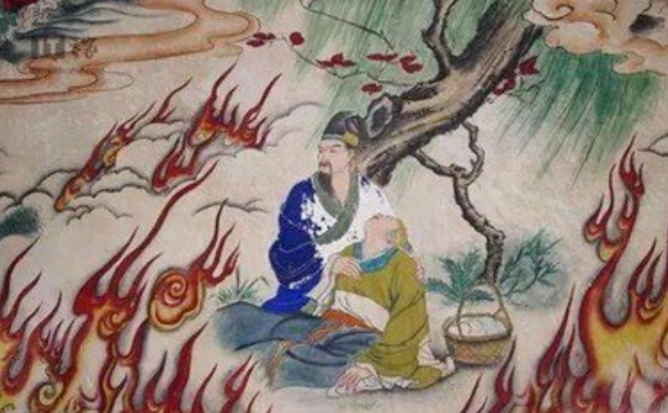
In this way, in order to commemorate Jie Zitui, Jin Wen Gong ordered to set fire to the mountain on this day as the Cold Food Festival, families do not fire only eat cold food. In the second year when Jin Wen Gong again came to the ancient willow of Mesi push, but accidentally found that the dead willow has been revived, Jin Wen Gong felt like seeing Mesi push, so the willow tree gave name "Qingming willow", the cold food Festival after the day as Qingming Festival. This is the origin of China's Qingming Festival, of course, after a long period of development, and then the customs of cold food Festival and Qingming Festival were merged, cold food Festival was gradually forgotten, so there are people only know the Qingming Festival and do not know the cold food. However, Qingming Festival and Cold Food Festival are interwoven in cultural connotation and constitute an important part of traditional Chinese festivals.
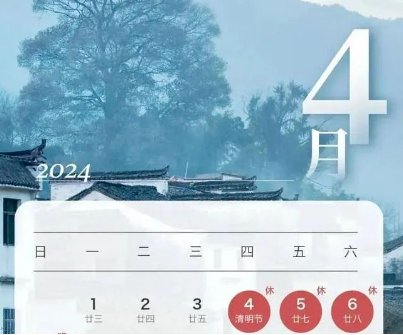
Qingming Festival is one of China's important "eight festivals", generally around April 5 in the Gregorian calendar, the festival period is very long, there are 10 days before 8 days and 10 days after 10 days after two kinds of saying, this nearly 20 days are Qingming Festival. In the Tang Dynasty, the Cold Food Festival + Qingming Festival had a four-day holiday; The Song Dynasty had a seven-day holiday. Qingming Festival originally refers to 15 days after the vernal equinox, in 1935, the government of the Republic of China set April 5 as the national holiday Qingming Festival, also known as the National Tomb Sweeping Day; In 2008, Qingming Festival officially became a legal holiday; On May 20, 2006, the Qingming Festival declared by the Ministry of Culture of China was approved by The State Council to be included in the first batch of national intangible cultural heritage list.
Qingming Festival is a combination of the Cold Food Festival popular in the north. At the beginning of the Cold Food Festival, the custom was to ban fireworks and eat cold food, and gradually increased in the development of later generations, such customs as visiting the grave, swinging, Cuju, and cockfighting. Qingming Festival also incorporates the customs of Shangsi Festival. Sangsa Festival is the most important festival in ancient times when people go to the water to bathe together called "excelsior", which has since been supplemented with sacrificial meals, drinking water and outdoor spring excursion. Therefore, the two main customs of Qingming Festival are sweeping the graves and paying respects to ancestors and going out for outing.

1, Tomb sweeping ancestor worship is one of the most important customs during the Qingming Festival. On this day, people will go to the graves of their ancestors, offer flowers, paper money and other items, and uproot weeds, add soil to cultivate graves, in order to express their respect and nostalgia for their ancestors. Sweeping tombs to worship ancestors is not only the memory of ancestors, but also the inheritance of family blood and culture.

2,Qingming Festival is a season of spring flowers and trees, and it is also a good time for people to have a spring outing. People often use this holiday to get outside, enjoy the beauty of spring, and feel the vitality and vitality of nature. In the process of outing, people will also carry out a variety of sports activities, such as swinging, Cuju (ancient), playing polo (ancient), etc., in order to exercise the body and pleasure.

3,During the Qingming Festival, people also have the custom of planting trees. Willows sprout green in spring, symbolizing the revival of life and the arrival of hope.
People will willow branches in front of the door or the grave, meaning to welcome the arrival of spring, pray for family prosperity, prosperity of children. At the same time, afforestation is also one of the important activities during the Qingming Festival. People plant trees to protect the environment and beautify their homes.
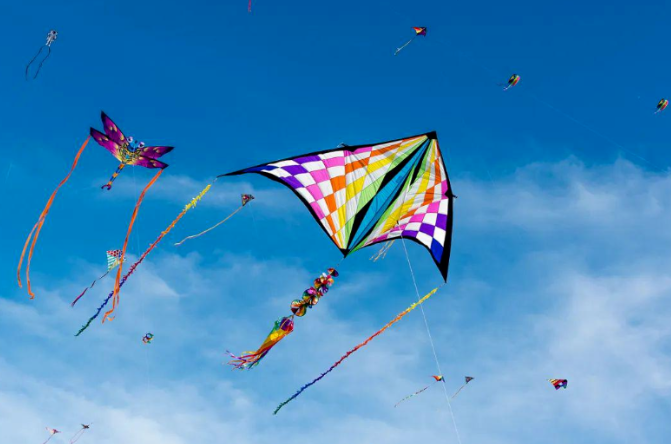
4,Kite Flying is one of the favorite activities during the Qingming Festival.
People will fly colorful kites in the open field and enjoy the beautiful scenery of kites flying in the blue sky and white clouds. Flying kites is not only a kind of entertainment, but also means flying mood and meeting the future. In addition to the above major customs, there are some unique Qingming Festival customs in different regions and nationalities. For example, sacrificial ceremonies are held in some places to pray for good weather and good harvests. In some places, cultural activities such as temple fairs and opera performances are held to enrich people's spiritual life. These customs have their own characteristics, together constitute the Qingming Festival rich and colorful cultural connotation.
